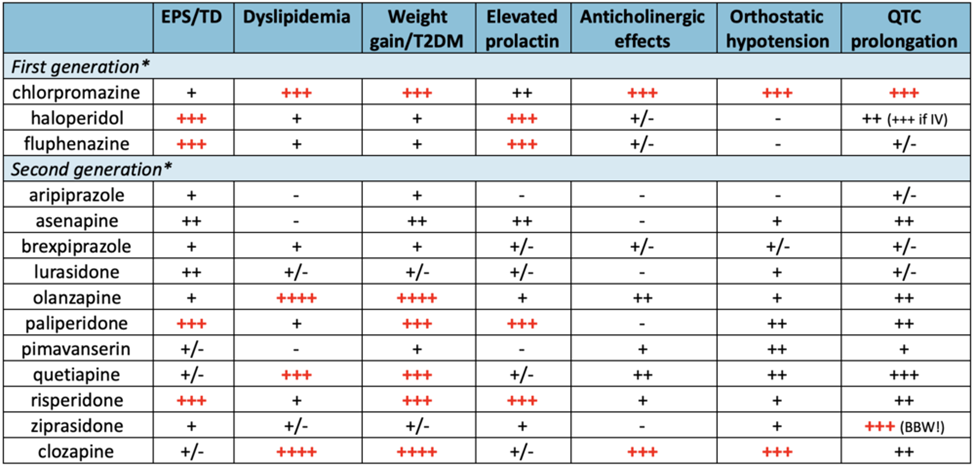A nurse can anticipate anticholinergic side effects are likely when a patient is taking:
risperidone (Risperdal)
lithium (Lithobid)
buspirone (Buspar)
fluphenazine (Prolixin)
The Correct Answer is D
A. Risperidone (Risperdal):
Risperidone is an atypical antipsychotic and generally has a lower propensity for causing anticholinergic side effects compared to typical antipsychotics.
B. Lithium (Lithobid):
Lithium is a mood stabilizer used primarily for bipolar disorder and does not typically cause anticholinergic side effects.
C. Buspirone (Buspar):
Buspirone is an anxiolytic medication and does not have significant anticholinergic properties. It tends to have fewer side effects compared to other medications used for anxiety.
D. Fluphenazine (Prolixin):
Fluphenazine is a typical antipsychotic medication and belongs to the phenothiazine class, which is known to have notable anticholinergic effects. These effects can include dry mouth, constipation, blurred vision, urinary retention, and cognitive impairment.

Nursing Test Bank
Naxlex Comprehensive Predictor Exams
Related Questions
Correct Answer is D
Explanation
A. "Why do you think you are being lied about and poisoned?": This question may come across as confrontational or challenging, potentially increasing the client's anxiety or defensiveness. It's important to acknowledge the client's feelings rather than questioning their beliefs directly.
B. "You are mistaken. Nobody is lying about you or trying to poison you.": This statement is dismissive and may cause the client to feel invalidated. It is crucial to acknowledge the client's feelings and experiences, even if they are not based on reality.
C. "Who is lying about you and trying to poison you?": This question may unintentionally reinforce the delusional thinking by suggesting that someone is indeed lying or trying to poison the client. It's essential to avoid validating or encouraging the delusional content.
D. "You seem to be having very frightening thoughts.": This statement acknowledges the client's emotions without directly challenging the delusional content. It shows empathy and creates an open and non-confrontational environment, allowing the client to express their feelings and experiences.
Correct Answer is C
Explanation
A. Psychiatrist: Psychiatrists focus primarily on medical and pharmacological interventions for mental illnesses. While they play a crucial role in diagnosing and treating mental health conditions, they typically do not have the expertise in housing assistance or social services.
B. Behavioral therapist: Behavioral therapists focus on psychotherapeutic interventions to address and modify behavior. They are not typically involved in addressing social determinants of health, such as housing.
C. Social worker: Social workers are specifically trained to address social issues, including housing. They work with clients to assess their social needs, connect them with resources, and advocate for their well-being. In this case, a social worker would be instrumental in helping the client find housing resources and support.
D. Psychologist: Psychologists primarily focus on psychological assessments, therapy, and interventions. Like psychiatrists, their expertise is more centered around mental health treatment rather than addressing the social determinants of health such as housing.
Whether you are a student looking to ace your exams or a practicing nurse seeking to enhance your expertise , our nursing education contents will empower you with the confidence and competence to make a difference in the lives of patients and become a respected leader in the healthcare field.
Visit Naxlex, invest in your future and unlock endless possibilities with our unparalleled nursing education contents today
Report Wrong Answer on the Current Question
Do you disagree with the answer? If yes, what is your expected answer? Explain.
Kindly be descriptive with the issue you are facing.
